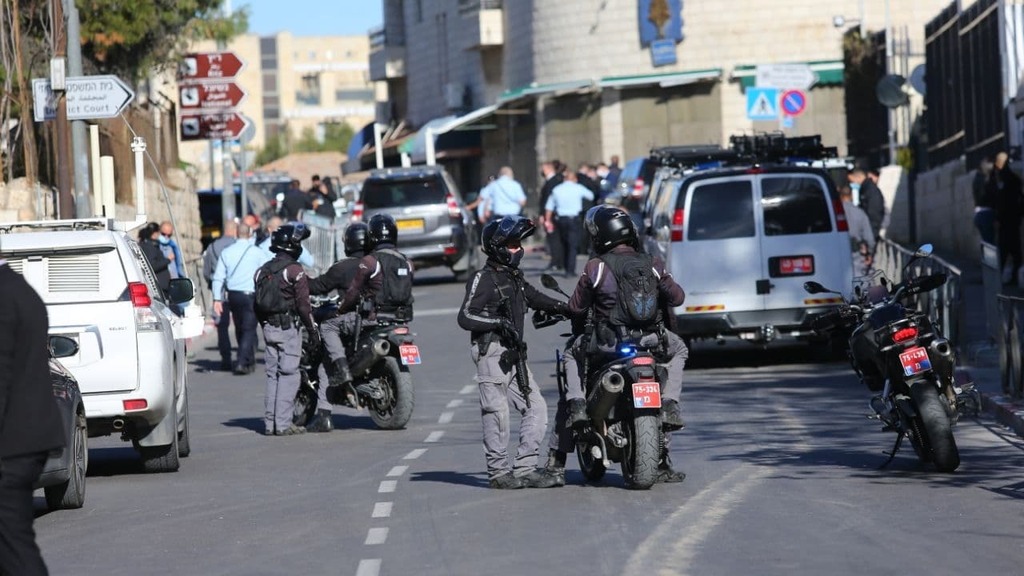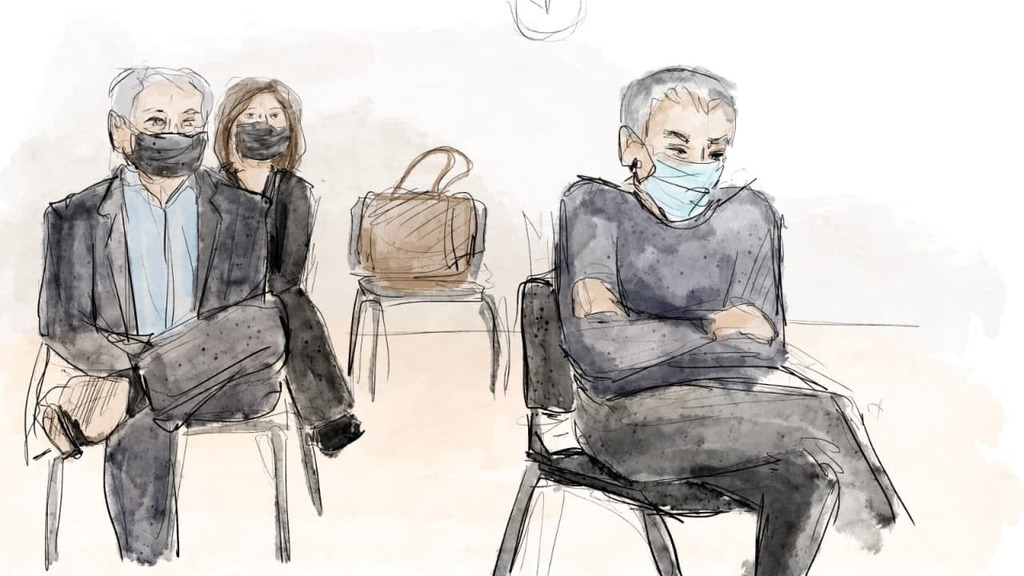Prime Minister Benjamin Netanyahu on Monday said that a decision by the Jerusalem District Court to proceed with his criminal trial before the March 23 elections could be viewed as interference in the political process.
Netanyahu was speaking at a press conference in Jerusalem hours after he appeared at Jerusalem District Court to respond to charges of fraud, bribery and breach of trust in three separate investigations.
5 View gallery
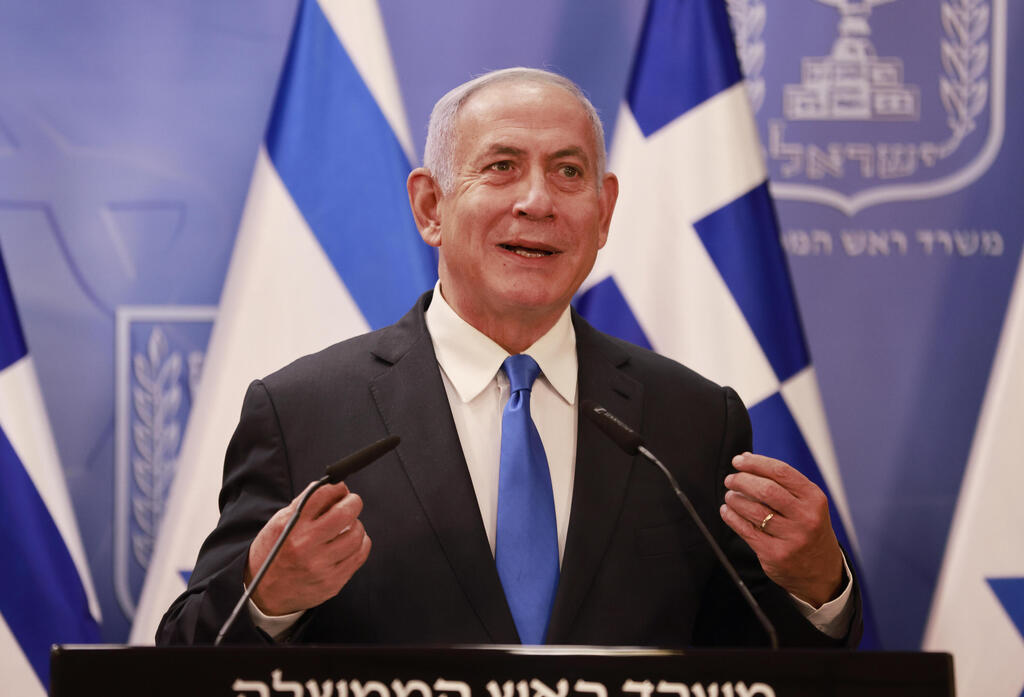

Prime Minister Benjamin Netanyahu speaking to reporters on Monday night in Jerusalem
(Photo: EPA)
"Everyone know the cases against me were fabricated," Netanyahu said, adding that they would likely fall apart as the trial progressed.
The prime minister's defense team asked the court earlier on Monday to postpone the next stage of his trial by three months due to the elections.
Netanyahu was indicted last year for fraud, breach of trust and accepting bribes in three separate cases. He stands accused of accepting lavish gifts from wealthy friends and offering to grant favors to powerful media moguls in exchange for favorable coverage of him and his family.
The latest hearing was postponed last month due to lockdown restrictions on public gatherings.
5 View gallery
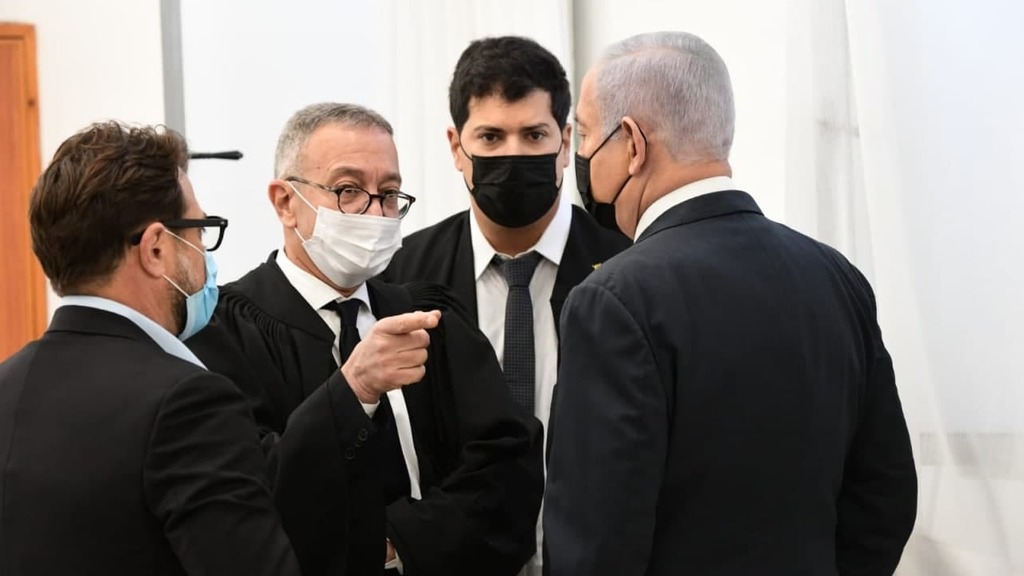

Prime Minister Benjamin Netanyahu consults with his team at Jerusalem District Court on Monday
(Photo: Reuven Castro)
Netanyahu arrived at Jerusalem District Court on Monday morning for the resumption of the trial, where he pleaded not guilty.
"I confirm the written answer submitted in my name," Netanyahu said, standing before the three-judge panel in a heavily guarded courtroom.
After around 20 minutes, Netanyahu left the courtroom without explanation and his motorcade departed. The hearing continued in his absence, with his lawyers arguing for more than an hour that constitutional procedures had not been followed.
The prosecution then rejected those arguments, saying the attorney general had approved the investigations in dozens of meetings.
Netanyahu's lawyer, Boaz Ben Tzur, later asked the judges to postpone the next hearing by "90 to 120" days.
5 View gallery
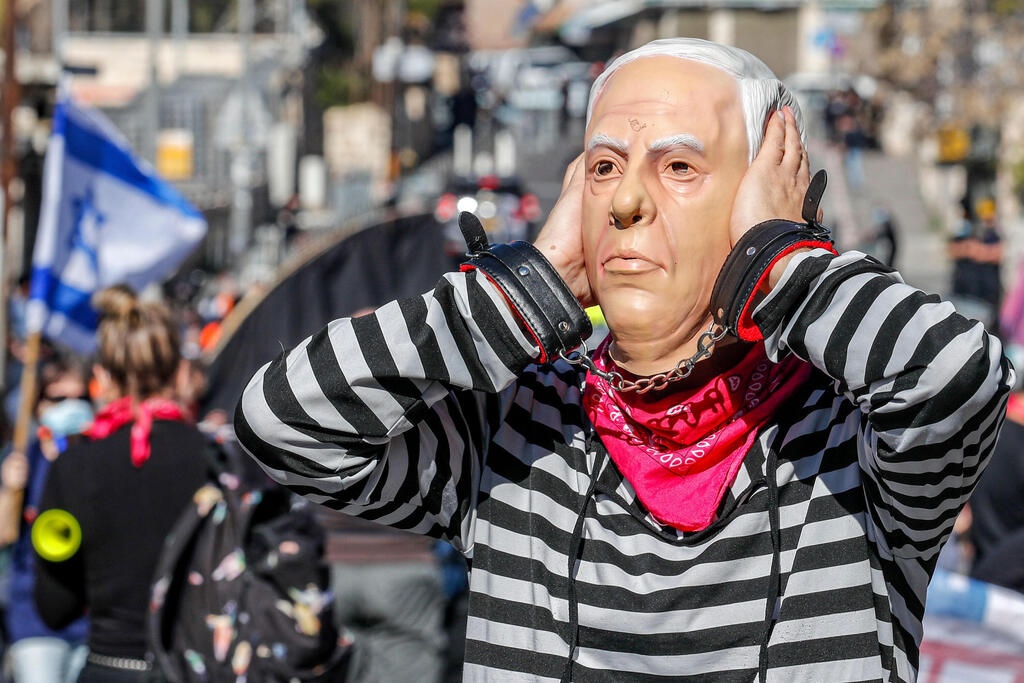

A demonstrator wearing a mask of Benjamin Netanyahu gestures during a protest outside Jerusalem District Court as the prime minister's corruption trial resumed Monday
(Photo: AFP)
Judge Rivka Friedman-Feldman, who heads the judges' panel, replied the trial has already been postponed multiple times due to the coronavirus pandemic and subsequent health restrictions.
"Basically, you want to postpone the evidentiary phase [of the trial] by six months," Friedman-Feldman said.
The hearing ended without a decision on whether the evidentiary phase will be postponed.
Friedman-Feldman said at the end of the hearing the panel will "consider everything" when making a decision on another possible postponement, which looks to be at least another month to a month and a half.
Despite the appeal to both pro and anti-Netanyahu protesters not to congregate outside the court due to coronavirus, demonstrators who gathered outside could be heard inside the room where the hearing was being held. They held banners and chanted anti-Netanyahu slogans.
The charges against Netanyahu are divided into three separate cases.
The most serious - known as Case 4000, in which the premier is accused of bribery, fraud and breach of trust - centers on the allegation that Netanyahu negotiated with Shaul Elovitch of the telecommunications giant Bezeq to secure positive coverage on his Walla! news site in exchange for government policies benefiting Bezeq.Elovitch and his wife were also indicted.
Case 2000 concerns allegations Netanyahu sought a deal with Arnon Mozes, the owner of Yedioth Aharonoth newspaper, that would have seen it give him more favorable coverage. Mozes is also the publisher of Ynet. Elovitch and Mozes also appeared in court on Monday.
Case 1000 involves allegations Netanyahu and his family received gifts, including luxury cigars, champagne and jewelry estimated to be worth more than NIS 700,000 ($213,000), from wealthy individuals, in exchange for financial or personal favors.
First published: 19:18, 02.08.21


